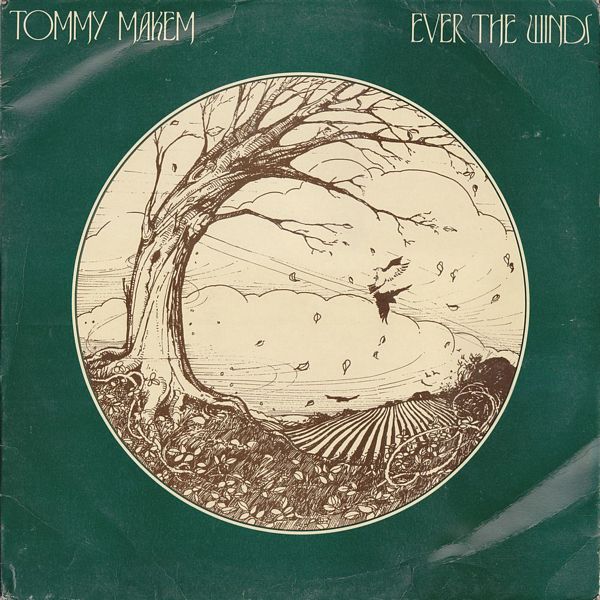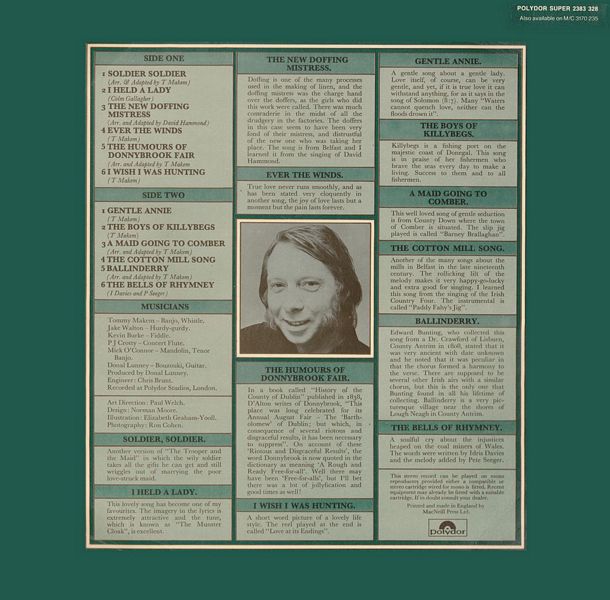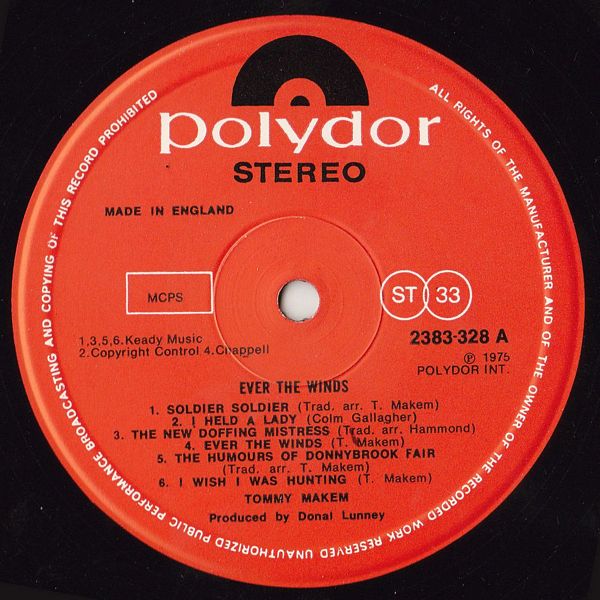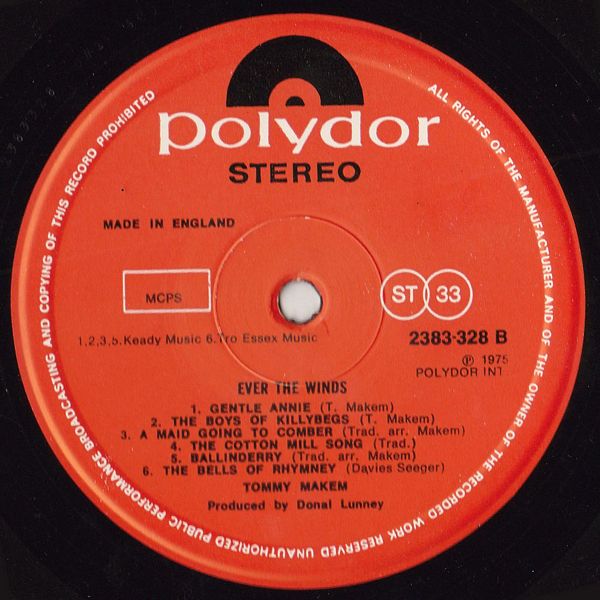

 |


 |
Sleeve Notes
SOLDIER, SOLDIER — Another version of The Trooper and the Maid in which the wily soldier takes all the gifts he can get and still wriggles out of marrying the poor love-struck maid.
I HELD A LADY — This lovely song has become one of my favourites. The imagery in the Lyrics is extremely attractive and the tune, which is known as The Munster Cloak, is excellent.
THE NEW DOFFING MISTRESS — Doffing is one of the many processes used in the making of linen, and the doffing mistress was the charge hand over the doffers, as the girls who did this work were called. There was much comraderie in the midst of all the drudgery in the factories. The doffers in this case seem to have been very fond of their mistress, and distrustful of the new one who was taking her place. The song is from Belfast and I learned it from the singing of David Hammond.
EVER THE WINDS — True love never runs smoothly, and as has been stated very eloquently in another song, the joy of love lasts but a moment but the pain lasts forever.
THE HUMOURS OF DONNYBROOK FAIR — In a book called History of the County of Dublin published in 1838, DAlton writes of Donnybrook, This place was long celebrated for its Annual August Fair - The Bartholomew of Dublin; but which, in consequence of several riotous and disgraceful results, it has been necessary to suppress. On account of these Riotous and Disgraceful Results, the word Donnybrook is now quoted in the dictionary as meaning A Rough and Ready Free-for-all. Well there may have been Free-for-alls, but Ill bet there was a lot of jollyfication and good times as well!
I WISH I WAS HUNTING — A short word picture of a lovely life style. The reel played at the end is called Love at its Endings.
GENTLE ANNIE — A gentle song about a gentle lady. Love itself, of course, can be very gentle, and yet, if it is true love it can withstand anything, for as it says in the song of Solomon (8:7). Many Waters cannot quench love, neither can the floods drown it.
THE BOYS OF KILLYBEGS — Killybegs is a fishing port on the majestic coast of Donegal. This song is in praise of her fishermen who brave the seas every day to make a living. Success to them and to all fishermen.
A MAID GOING TO COMBER — This well loved song of gentle seduction is from County Down where the town of Comber is situated. The slip jig played is called Barney Brallaghan.
THE COTTON MILL SONG — Another of the many songs about the mills in Belfast in the late nineteenth century. The rollicking lilt of the melody makes it very happy-go-lucky and extra good for singing. I learned this song from the singing of the Irish Country Four. The instrumental is called Paddy Fahys Jig.
BALLINDERRY — Edward Bunting, who collected this song from a Dr. Crawford of Lisburn, County Antrim in 1808, stated that it was very ancient with date unknown and he noted that it was peculiar in that the chorus formed a harmony to the verse. There are supposed to be several other Irish airs with a similar chorus, but this the only one that Bunting found in all his lifetime of collecting. Ballinderry is a very picturesque village near the shores of Lough Neagh in County Antrim.
THE BELLS OF RHYMNEY — A soulful cry about the injustices heaped on the coal miners of Wales. The words were written by Idris Davies and the melody added by Pete Seeger.